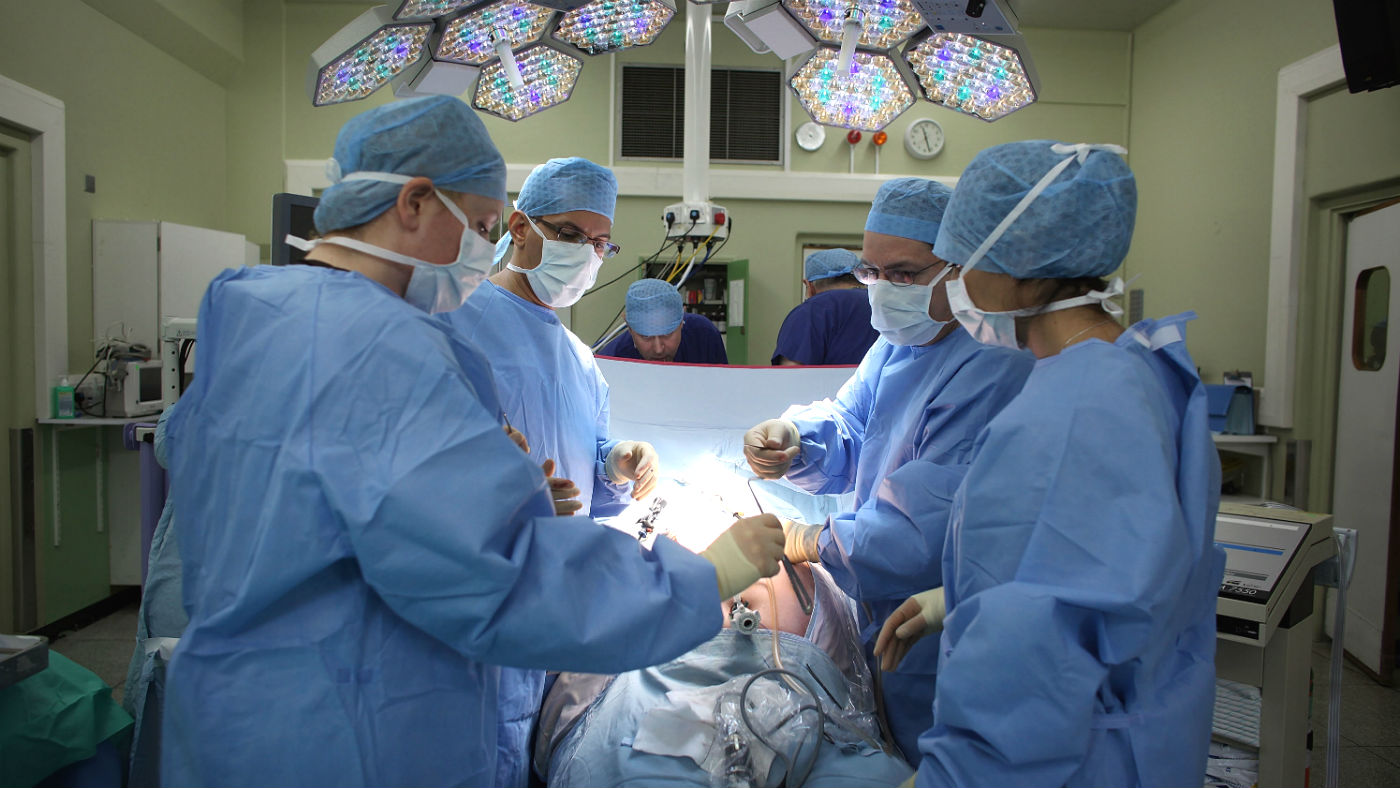Coronavirus NHS measures: which routine operations will be cancelled?
NHS England to postpone non-urgent procedures to clear beds for Covid-19 patients

A free daily email with the biggest news stories of the day – and the best features from TheWeek.com
You are now subscribed
Your newsletter sign-up was successful
All non-urgent operations in England and Scotland will be postponed to free up NHS beds for coronavirus patients, the government has announced.
According to The Times, NHS hospitals in England will halt all routine operations for at least three months from 15 April and send as many patients as possible home, with the aim of freeing up a third of the NHS’s 100,000 hospital beds.
Simon Stevens, the head of NHS England, said this week that “there is no health service in the world that would be able to cope if this virus let rip”.
The Week
Escape your echo chamber. Get the facts behind the news, plus analysis from multiple perspectives.

Sign up for The Week's Free Newsletters
From our morning news briefing to a weekly Good News Newsletter, get the best of The Week delivered directly to your inbox.
From our morning news briefing to a weekly Good News Newsletter, get the best of The Week delivered directly to your inbox.
He added that the NHS will be “suspending elective non-urgent surgery with an assumption that will be suspended everywhere from 15 April at the latest for at least three months, with a discretion for hospitals to take action earlier if they need it”.
The service will also discharge thousands of patients without full assessments to free up more space, refresh its staff training within a fortnight on how to care for patients with respiratory problems and bulk-buy space in private hospitals to increase bed numbers.
And NHS Scotland is “moving to an emergency footing for at least the next three months”, according to Scottish Health Secretary Jeane Freeman. It is postponing all non-urgent elective care.
The Guardian reports that the moves are intended to “help the already overstretched health service manage the ‘intense pressure’ that the growing epidemic will put on it”.
A free daily email with the biggest news stories of the day – and the best features from TheWeek.com
The paper reports that the operations likely to be put on hold will include cataract removal, hernia repair and hip or knee replacements. Cancer operations will continue to go ahead, the NHS clarified.
The move has been welcomed by experts, with Chris Hopson, chief executive of NHS Providers, stating: “This is sensible. Trusts need to increase bed capacity to deal with the added pressures of coronavirus.
“Postponing elective operations in this way will free up beds, space and staff to support this effort, strengthening their ability to provide critical care. While this will be disappointing for those waiting for treatment, it is clearly a necessary move.”
-
 How the FCC’s ‘equal time’ rule works
How the FCC’s ‘equal time’ rule worksIn the Spotlight The law is at the heart of the Colbert-CBS conflict
-
 What is the endgame in the DHS shutdown?
What is the endgame in the DHS shutdown?Today’s Big Question Democrats want to rein in ICE’s immigration crackdown
-
 ‘Poor time management isn’t just an inconvenience’
‘Poor time management isn’t just an inconvenience’Instant Opinion Opinion, comment and editorials of the day
-
 A real head scratcher: how scabies returned to the UK
A real head scratcher: how scabies returned to the UKThe Explainer The ‘Victorian-era’ condition is on the rise in the UK, and experts aren’t sure why
-
 How dangerous is the ‘K’ strain super-flu?
How dangerous is the ‘K’ strain super-flu?The Explainer Surge in cases of new variant H3N2 flu in UK and around the world
-
 The ‘menopause gold rush’
The ‘menopause gold rush’Under the Radar Women vulnerable to misinformation and marketing of ‘unregulated’ products
-
 The new Stratus Covid strain – and why it’s on the rise
The new Stratus Covid strain – and why it’s on the riseThe Explainer ‘No evidence’ new variant is more dangerous or that vaccines won’t work against it, say UK health experts
-
 How the care industry came to rely on migrant workers
How the care industry came to rely on migrant workersThe Explainer Government crackdown on recruiting workers abroad risks deepening care sector crisis, industry leaders warn
-
 Could medics' misgivings spell the end of the assisted dying bill?
Could medics' misgivings spell the end of the assisted dying bill?Today's Big Question The Royal College of Psychiatrists has identified 'serious concerns' with the landmark bill – and MPs are taking notice
-
 Washwood Heath: Birmingham's pioneering neighbourhood health service
Washwood Heath: Birmingham's pioneering neighbourhood health serviceIn the Spotlight NHS England chair says there is a 'really good argument this is the model for the future'
-
 The UK's first legal drug consumption room
The UK's first legal drug consumption roomThe Explainer 'Potentially transformative moment in UK drugs policy' as The Thistle opens in Glasgow